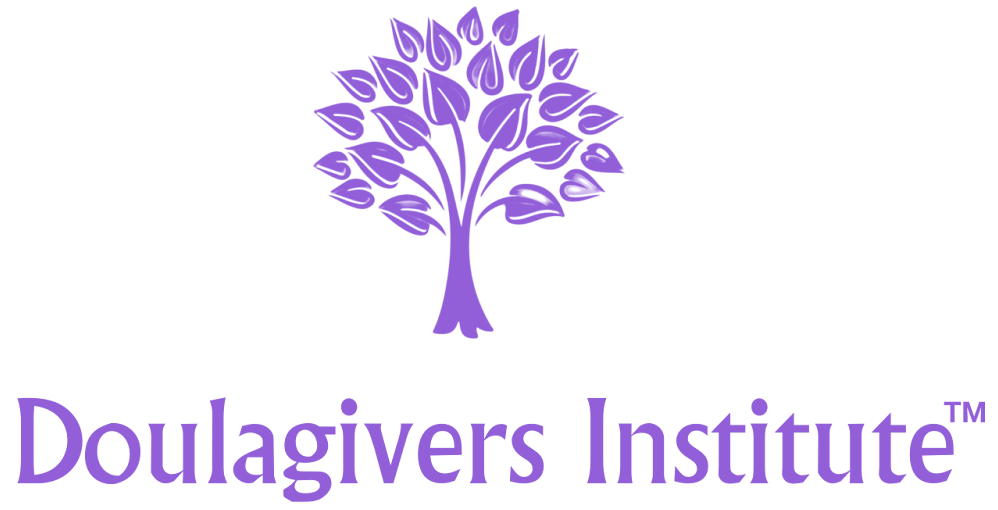
The Transformative Power of Forgiveness: How Letting Go Can Help You Move Forward | Doulagivers Institute
May 3, 2023
Forgiveness is one of the most powerful tools we have in life. It gives us control over making the conscious choice to move forward from past painful experiences, hurt, and trauma. At Doulagivers Institute, we recognize forgiveness as a transformational tool for healing and finding peace during the end of life journey for patients and their loved ones. But did you know that practicing forgiveness can even improve your physical health, and provide a path toward spiritual growth? In this blog post, we will explore how forgiveness works its magic on both a mental and physical level as well as practical ways to forgive yourself and others.
Forgiveness is an act of mercy and understanding. It is a voluntary decision to let go of resentment and anger towards another person who has wronged us in some way. Forgiveness is not about condoning the action or absolving the offender from responsibility; rather, it’s about freeing ourselves from the weight of anger, hurt, and resentment so that we can move forward in our own life and live healthier and happier. Forgiveness is an important skill to master for self-improvement and leads to healthier relationships and a better quality of life.
Forgiveness is a powerful tool that can have a profound impact on our lives. Not only does it bring emotional and psychological benefits, but research has also shown that forgiveness can lead to improved physical health and wellness. Studies have found that forgiving yourself and others can bring about numerous health benefits, such as lowering the risk of heart attack, improving cholesterol levels and sleep quality, reducing pain, blood pressure, and stress, and decreasing anxiety and depression. As we age, these benefits become even more evident. Therefore, forgiveness plays a vital role not only in our emotional well-being but also in our physical health as well.
When you experience chronic anger and other negative emotions, your body reacts by entering a state of fight-or-flight. This causes various changes in your heart rate, blood pressure, and immune responses. As a result, your risk of developing depression, heart disease, and diabetes, among other conditions, increases. On the other hand, forgiveness can reduce stress levels and improve your health. You can read more about these findings in the article “Forgiveness: Your Health Depends On It” by Johns Hopkins Medicine here.
Forgiveness also plays a vital role in healing from trauma and restoring fractured relationships with others. It provides an opportunity for us to reflect on our personal experiences, grow as individuals, and move forward with healthier perspectives about ourselves and those around us. By understanding the many benefits of forgiving others and ourselves, we can create more fulfilling lives filled with love, compassion, peace, joy, and connection.
I have witnessed the Power of Forgiveness in the lives of many of my end of life patients. Having been present at the bedside during the end-of-life journey of over 1,000 people throughout my career, I have seen firsthand the incredible benefits that practicing forgiveness can have… I have also seen the devastating effects of when it cannot or does not occur. When we hold onto pain, anger, resentment, guilt, and shame, it keeps us stuck in an emotional prison that steals happiness away from the present moment. It allows what has happened in the past to hang over our heads, preventing us from showing up fully and making the most of our current lives. It becomes an immovable obstacle between where we are and where we want to go. By learning to forgive, you learn how to reach acceptance and make peace with past pain, trauma and regret so that you can move forward and create the future exactly the way you want it to be. Forgiveness is truly the secret key to unlocking an extraordinary life!
Forgiveness can be challenging and requires a significant amount of emotional effort, understanding, and acceptance. It is a voluntary act, so you must genuinely believe that it is the best course of action for you and will bring you a better outcome than holding onto whatever negative emotions you currently have. One of the common misconceptions about forgiveness is believing that it is for the benefit of the other person. In reality, forgiveness is about freeing yourself from the negative emotions and turmoil that come from holding onto pain, anger and resentment from our past.
The difficulty of letting go of the pain caused by others or yourself presents the most difficult challenge when it comes to forgiveness for most people. Many find it challenging to forgive because they feel as though they are letting the person who wronged them off the hook. Additionally, the fear of being vulnerable or getting hurt again can hinder one from forgiving. When we have suffered terrible pain or trauma, sometimes the thought of forgiving the person who harmed us is unconscionable – but we must realize that holding onto that hurt will cause us even more pain over the long-term. Learning to forgive reveals a path to peace and acceptance in our lives that all of us deserve.
Empathy is at the center of the forgiveness process. It allows you to see things from the perspective of the person who caused the pain, their intentions, and their underlying motivations and circumstances. While forgiving others can be challenging, it comes with many benefits, including improved mental health, reduced stress, and a healthier and happier life. Releasing negative emotions like anger, resentment, and hostility makes room for positive emotions like empathy, compassion, and occasionally even affection to take their place. Remember that forgiveness is not for the other person – it is for YOU! YOU are the one who is either experiencing negative or positive emotions based on whether or not you can utilize forgiveness. YOU are the one that either reaps the benefits of forgiveness or suffers the consequences of unforgiveness in your life.
Studies have shown that being naturally forgiving can lead to greater life satisfaction and lower levels of depression, anxiety, and stress. Conversely, people who hold grudges may be more prone to severe depression, post-traumatic stress disorder, and other health issues. However, individuals can learn to behave in healthier ways, even if forgiveness does not come naturally to them. This is particularly relevant, as a survey conducted by the nonprofit Fetzer Institute revealed that 62% of American adults feel they need more forgiveness in their personal lives.
Practicing forgiveness isn’t easy; it takes time, effort, and commitment. Fortunately, Doulagivers Institute has developed practical steps that can help people learn how to forgive themselves and others to improve their well-being and start shaping the future the way they want it to be. By acknowledging our emotions while communicating openly with ourselves or those we need to forgive, we can take back control of our lives by releasing negative feelings associated with past events or relationships. By learning how to forgive effectively, everyone can unlock the power within them to find true inner peace and joy in their lives. By following these steps and understanding the importance of forgiveness in our lives, we can begin our journey toward a brighter future. With the help of the Doulagivers Forgiveness Guide and Forgiveness Workshop, anyone can learn these practical steps of forgiveness and find freedom from the pain of their past.
To incorporate forgiveness into your life, remember that it is a conscious decision. You are opting to extend kindness and understanding to the person who caused you harm (or to yourself for mistakes you have made). Embracing and developing the ability to forgive more freely will allow you to experience improvements in your mental, emotional, and physical well-being.
Here are Five Tips for Forgiving Effectively
- Take time to think back and recall the past events you want to give and receive forgiveness for, as well as how you responded in the moment, how you felt, and the lasting impact of any anger or pain that resulted from these events.
- To achieve true healing through forgiveness, it’s important to forgive deeply. Merely forgiving someone out of a feeling of obligation will not suffice. One study suggests that people who forgave someone by truly acknowledging that nobody is perfect were able to rebuild a healthy relationship with that person, even without an apology. Conversely, those who only forgave in hopes of restoring the bond ended up with a damaged relationship.
- Do not expect an apology to necessarily repair your relationship with the other person or to receive an apology from them. By letting go of these expectations, you can avoid potential disappointment and further negative emotions. Forgiveness must be given without the expectation of receiving something in return.
- Decide to forgive and follow it up with action. If you are unable to speak to the person who hurt you, consider writing out your feelings or confiding in someone you trust. The Doulagivers Forgiveness Workshop will show you a technique you can use to give Forgiveness without having to talk to the other person (or even needing them to be alive!)
- Remember to forgive yourself. You are just as human as anybody else and you deserve the same consideration and compassion you would show to others. Holding yourself to unfair standards will demoralize you and damage your self-esteem. This prevents you from living the most fulfilling life possible. Forgiveness of self is extremely important.
If you know you need more Forgiveness in your life but don’t know where to start, you can Download our FREE Forgiveness Guide Here!
Or Register for the next FREE Doulagivers Forgiveness Workshop Webinar Here!
Forgiveness is an incredibly powerful tool for healing and growth. It allows us to move forward from difficult experiences, foster healthier relationships, and create a more positive outlook on life. Doulagivers Institute has developed a system of practical steps that can help people learn how to forgive themselves and others to improve their lives and overall well-being. By understanding the transformative power of forgiveness, knowing the importance of forgiving yourself and learning how to forgive others, we can take the first steps on our forgiveness journey and welcome a better future for ourselves. Honoring your feelings and communicating them effectively will help you embrace forgiveness in your life and access the capability within yourself to find true inner peace and an abundance of joy.
The act of forgiveness may be challenging, but it is a vital component to achieving and maintaining good health. It provides a way for us to reconcile with things that caused us pain in the past, as well as find resolution and make peace with those who have wronged us. More importantly, forgiveness allows us to restore broken relationships and free ourselves from negative emotions that hold us back from creating the future we want for ourselves. These emotions can even have a detrimental impact on our physical well-being.
To gain a deeper understanding of how to practice forgiveness you can Download the Free Doulagivers Forgiveness Guide or Register for the next Free Doulagivers Forgiveness Workshop Webinar below! Taking this step will help you transform and let go of the pain from your past so that you can move forward and live a healthier and happier life.
Download the FREE Doulagivers Forgiveness Guide Here!
Register for the FREE Doulagivers Forgiveness Workshop Webinar Here!
Looking for help with something else? Access our FREE Resource Center for Family Caregivers Here!
#PracticeForgiveness #HealingThroughForgiveness #ForgivenessScience #MentalHealthBenefits #StressReduction #EnhanceRelationships #Resilience #HealthierLife #DoulagiversInstitute #FreeTraining #SelfForgiveness #ForgiveOthers #MoveForward #EmotionalFreedom #WellnessJourney #MentalWellbeing #PositivePsychology #OvercomingAdversity #TransformationalHealing #PersonalGrowth


